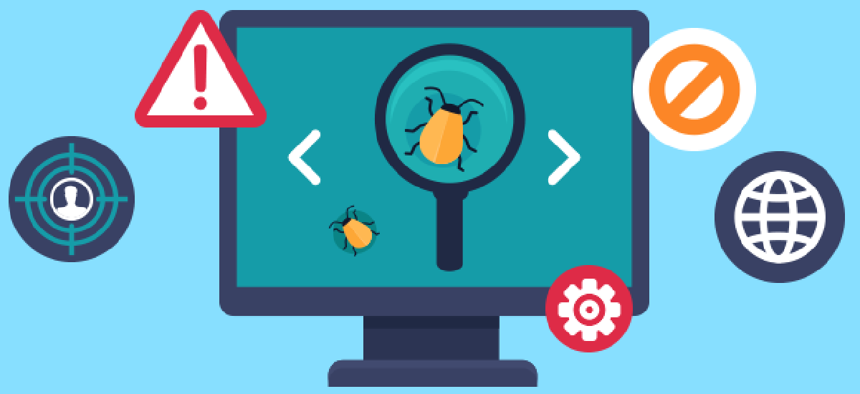Connecting state and local government leaders
The Pentagon's recent pilot program shows just how pervasive the exploitable network vulnerabilities are.
The Department of Defense recently reported on its “Hack the Pentagon” pilot project, and you could say there’s both good and bad news. The good news is that the hackers hired to hunt down bugs in the Pentagon’s systems found over 100 vulnerabilities in the three weeks or so they had, beginning April 18. The bad news is that they found over 100 vulnerabilities.
The pilot was the first-ever government program to pay people to hunt down bugs in systems, as a way to more quickly and less expensively shore up cybersecurity. It mirrors successful programs that companies such as Facebook, Google and Microsoft have been running over the past few years.
Defense Secretary Ashton Carter revealed the number of bugs at a recent industry conference. DOD officials had earlier put the number at a slightly lower number.
So the fact that the more than 1,400 hackers who swarmed the Pentagon’s systems found so many bugs in a such a short time is good news, inasmuch as DOD can rectify the buggy systems and make them safe again. All around, the program did its job in boosting Pentagon cybersecurity and probably laid the groundwork for similar programs in the future.
However, finding that many bugs in just a few weeks, particularly when no critical or sensitive systems were included, raises doubts about just how many other vulnerabilities are present in Pentagon systems. By extension, what does that mean also for the security of other government systems?
It’s not an academic question, given the rate at which the black hatters are improving their ability to attack vulnerable systems and access sensitive data. The example of the devastating attack on the Office of Personnel Management’s systems, and the compromise of millions of records there, is only a year old, after all.
Industry researchers have turned up more evidence of just how pervasive and industrialized the cybercriminal efforts have become. An underground marketplace called xDedic is now selling access to compromised servers for as little as $6 each. It has over 70,000 servers from 173 countries belonging to government agencies or corporations up for sale.
As the researchers point out, criminals or state groups can buy the credentials of the remote desktop protocol servers and then use those to launch broader attacks on an organization’s networks and systems or use them as a platform for broader attacks, such as distributed denial of service. And all without the owners of said servers knowing what’s going on.
There’s no obvious answer to this kind of market-driven black hattery. You could maybe go in the direction that the government of Singapore has decided to go, by cutting off access to the Internet completely for a fair number of its systems. That’s already done in the U.S. by three-letter agencies for some of their systems, for example, but you take an obvious hit to productivity when you apply that more broadly.
Given the apparent success of the Pentagon pilot, there would seem to be a case for expanding that kind of bounty program. However, that runs into a very government-specific problem, i.e. the lack of money. The Pentagon had $75,000 available for the pilot, and paid the bug hunters up to $15,000 for each discovery, depending on how important the find was.
It’s likely any expanded program would need a lot more, however. Yahoo alone has reportedly paid out some $1.6 million in bounties since 2013. Recently, Google said it had paid $550,000 to 82 people in just the one year its Android Security Rewards program has been running, and it intends to boost rewards even more, to a maximum of $50,000 for such things as discovery of remote exploit chains.
So, hunting bugs is getting to be an expensive endeavor, but maybe that’s what’s needed given the ROI being offered to the bad guys. Paying $6 for a chance at a potentially huge jackpot is a no-brainer for them, which is why such things as xDedic will only become bigger and exploits more available.
NEXT STORY: How to plan for after the hack



